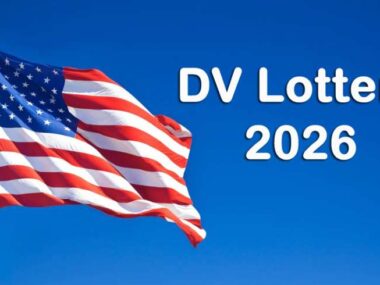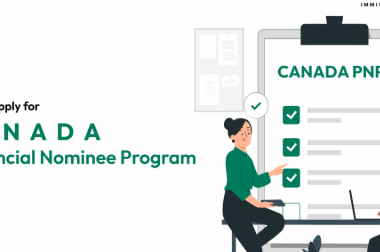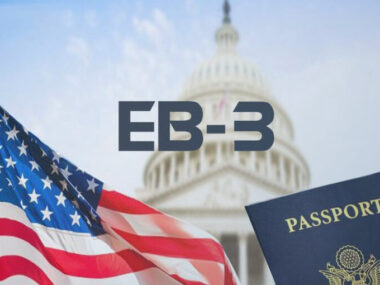The Netherlands is a hub for innovation, offering a Startup Visa for non-EU/EEA/Swiss entrepreneurs to launch innovative businesses. This one-year residence permit supports ambitious startups, with opportunities to transition to long-term residency. This guide details eligibility, application steps, and key considerations for securing the visa in 2025, using government-verified resources.
Understand the Startup Visa
The Dutch Startup Visa allows non-EU/EEA/Swiss entrepreneurs to live and work in the Netherlands for one year to develop an innovative business. It requires collaboration with a recognized facilitator, a business mentor who provides guidance. After the initial year, successful entrepreneurs can apply for a self-employed residence permit to continue their venture.
This program is designed to make the Netherlands attractive for global talent, particularly in high-growth areas such as technology, sustainability, health, and logistics. The Dutch government actively supports entrepreneurship, making this visa one of the most practical entry points for innovators.
Eligibility Requirements
To qualify for the Startup Visa, applicants must meet these criteria:
- Innovative Business Idea: The business must introduce a new product, service, or technology, or use innovative methods for production, distribution, or organization, as defined by the Netherlands Enterprise Agency (RVO).
- Collaboration with a Facilitator: Partner with an RVO-recognized facilitator, who provides mentorship and support. Facilitators must not have a majority stake in the business or be related to the applicant (up to third-degree relatives).
- Financial Resources: Prove sufficient funds to cover living and business expenses for one year, typically €14,000–€17,000, shown via bank statements or facilitator funding.
- Step-by-Step Plan: Submit a detailed business plan outlining the idea, market strategy, and growth potential.
- Valid Passport: Must be from a non-EU/EEA/Swiss country.
- Health and Character: Provide a clean criminal record and pass any required health checks.
Applicants should note that incomplete or vague business plans are a leading reason for rejection. It’s essential to clearly show how your idea stands out from existing competitors in the Dutch market.
Find a Recognized Facilitator
A facilitator is critical to the visa process, acting as a mentor to guide your startup. They must be:
- Experienced in mentoring startups.
- Financially stable, with no bankruptcy or negative equity.
- Registered with the Netherlands Chamber of Commerce (KVK).
A list of approved facilitators is available on the RVO recognized facilitators page. Contact facilitators early to align your business idea with their expertise, such as digital, energy, or life sciences sectors.
Strong facilitators can also connect you with local investors, accelerators, and co-working spaces, helping your business integrate quickly into the Dutch startup ecosystem.
Prepare a Business Plan
Your business plan must demonstrate innovation and economic benefit to the Netherlands. Key elements include:
- Business Concept: Describe the product or service and its innovative aspects.
- Market Analysis: Outline the target market, competitors, and growth potential.
- Financial Projections: Detail startup costs, revenue forecasts, and funding sources.
- Operational Plan: Explain roles, tasks, and the legal structure of the business.
Facilitators often assist in refining the plan to meet RVO standards. Successful applicants typically include proof-of-concept, market validation (like pilot customers), and scalability strategies. Adding details such as environmental benefits or contributions to Dutch innovation policy can also strengthen your chances.
Application Process
Follow these steps to apply for the Startup Visa:
- Secure a Facilitator: Sign an agreement with a recognized facilitator, specifying their support package (e.g., marketing, operations, or funding).
- Gather Documents: Collect your passport, business plan, financial proof, facilitator agreement, and criminal record certificate. Documents must be in English or Dutch, with apostilles if required.
- Submit Application: Apply through the Immigration and Naturalisation Service (IND) online portal or by post. Your facilitator can submit on your behalf. If abroad, apply at a Dutch embassy or consulate.
- Pay Fees: The application fee is €405 (2025 rate). Additional facilitator fees may apply, typically €1,000–€5,000.
- Await Processing: The IND, in collaboration with RVO, processes applications within 90 days. You may need to provide a provisional residence permit (MVV) if your nationality requires one.
- Collect Visa: If approved, pick up your MVV (if applicable) at the embassy and your residence permit in the Netherlands.
Applicants should avoid common mistakes such as vague financial projections, incomplete facilitator contracts, or submitting documents without proper translations.
Registering Your Business
Once approved, register your startup with the Netherlands Chamber of Commerce (KVK) to receive a KVK number. This confirms your active role in the business, ensuring autonomy over operations. Facilitators may assist with registration if not completed before visa approval.
The KVK registration also allows you to open a Dutch business bank account, apply for VAT numbers, and establish contracts with clients or suppliers.
Transitioning After One Year
After the one-year visa, apply for a self-employed residence permit to continue your business. Requirements include:
- Demonstrating business viability and growth (e.g., revenue, clients, or job creation).
- A facilitator’s recommendation letter, if available, to waive certain scoring criteria.
- Sufficient income to support yourself, typically aligned with the Dutch minimum wage (€1,934.40/month in 2026).
Those who meet these requirements can later apply for permanent residency or even Dutch citizenship if they continue to live and work in the Netherlands for several years.
Tips for Success
- Choose the Right Facilitator: Select one with expertise in your industry for tailored support.
- Learn Basic Dutch: A1–A2 proficiency improves networking and integration, though English is sufficient for most business interactions.
- Target Startup Hubs: Focus on cities like Amsterdam, Utrecht, or Eindhoven, known for vibrant startup ecosystems.
- Network: Attend events like StartupDelta or contact the Netherlands Point of Entry for connections.
- Budget Wisely: Account for living costs (€1,200–€2,000/month in Amsterdam) and facilitator fees.
In addition, entrepreneurs are advised to build partnerships with Dutch universities, research institutes, and incubators, as collaboration strengthens your credibility.
Statistics on the Dutch Startup Visa
Application Volume
In 2024, the IND processed over 1,500 Startup Visa applications, with a 70% approval rate for complete submissions (IND, 2026).
Processing Times
Visa processing takes up to 90 days, with faster turnaround for applications submitted by facilitators (IND, 2026).
Facilitator Involvement
Over 50 RVO-recognized facilitators operate in the Netherlands, specializing in sectors like tech, energy, and life sciences (RVO, 2026).
Economic Impact
Startups under the visa program contributed €500 million to the Dutch economy in 2024, creating 2,000 jobs (Netherlands Enterprise Agency, 2026).


